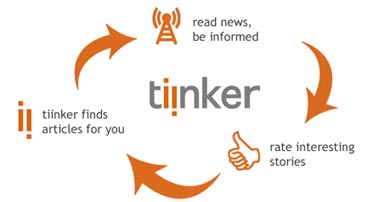Audited data for online traffic to Australia’s newspapers and magazines will be produced by the end of the year.
Tag Archives: Australia
AFP: Australia’s Fairfax Media to shed 550 jobs
Redundancies will affect 180 journalists in Australia and New Zealand, as the company attempts to save 50 million Australian Dollars.
The Age: Online audience growth slows for Australian newspapers
Online traffic to Australian newspapers has shown slower growth compared to increases in print circulation, according to the latest circulation figures.
Australian National Library opens newspaper archive
Australia’s National Library has launched an archive of images and articles from Australian newspapers between 1803 and 1954.
The beta site currently features scanned pictures and text from 11 titles.
Content is easily navigable thanks to a panning tool and zoom controls, and can be searched by date, title, state or article keyword.
Telegraph.co.uk: Felix Dennis to launch The Week in Australia, India and Canada
Felix Dennis, the man behind Dennis Publishing and magazines Stuff and The Week, is planning to launch an Australian edition of The Week in October.
Future plans also involve editions for India and Canada.
“I don’t care if I’m investing in a so-called sunset industry. The sun is setting very, very slowly. And there are only two types of businesses: the well run and the badly run. The well run will survive a recession,” he said.
The Age: Fairfax plans for online expansion in Australia
Fairfax has reportedly bought up a series of domain names covering new areas of Australia and variations on its existing sites for Melbourne, Brisbane and Sydney.
Innovations in Journalism – Tiinker
We give developers the opportunity to tell us journalists why we should sit up and pay attention to the sites and devices they are working on. Today it’s your news selected and filtered with artificial intelligence from Tiinker.
1) Who are you and what’s it all about?
Hi I’m Alex North. Tiinker has been developed by Deep Grey Labs. We’re a young start-up in Sydney, Australia, focussed on bringing artificial intelligence and machine learning technology out of academia and into products and services people can use.
There’s masses of information published online every day – way too much for any individual to track. Tiinker lifts some of the burden by filtering and exploring to find content that’s interesting to you as an individual, hiding irrelevant or uninteresting stories.
2) Why would this be useful to a journalist?
Tiinker is great for keeping up with news in one or a number of interest areas. It gathers stories from thousands of news sources and picks out the interesting ones based on which articles you have previously found interesting.
Although you could visit all the sources individually, each one probably has only a few stories of real interest. Over time, Tiinker will learn to pick these out for you.
3) Is this it, or is there more to come?
Tiinker has much more to come. We’re working now on some features to help you share stories you’ve found on Tiinker with friends and colleagues, and continually improving the content selection algorithms.
4) Why are you doing this?
From a broad point of view, we want to help apply the amazing research that goes on at our universities into things people can actually use. More narrowly, tiinker addresses the growing problem of information overload – something which affects us all in some way and will continue to do so unless we bring computing to bear on the problem.
5) What does it cost to use it?
Nothing, it’s free.
6) How will you make it pay?
Eventually with targeted advertising running on the site, but right now it’s ad-free as well.
Social Media Journalist: ‘You have to be selective, keeping across all sites dilutes the value of the good ones’ Vicky Taylor, editor BBC Interactivity
Journalism.co.uk talks to journalists across the globe about social media and how they see it changing their industry.
1. Who are you and what do you do?
Vicky Taylor, editor of Interactivity for BBC News. I run the team which produces the Have Your Say section of the website and the UGC hub which takes all the fantastic content the public send us and passes it on to all other BBC programmes and sites – internationally and in UK.
2. Which web or mobile-based social media tools do you use on a daily basis and why?
Apart from Have You Say on BBC news website (on my pc but also on my phone as read only) I get news email alerts on my phone and on my PC about upcoming BBC programmes.
I’m also on Facebook, but use that mainly to contact old friends now in Australia (not from BBC of course), and LinkedIn, which is more useful for business contacts.
Your net worth is your network as the guy who set it up said recently! I started off using del.icio.us to bookmark interesting articles but never have enough time to do it justice. As a team we look at Youtube, Shozu, Seesmic, MySpace and some team members are on twitter so we monitor that too.
3. Of the thousands social media tools available could you single one out as having the most potential for news, either as a publishing or newsgathering tool?
Facebook has been fantastically helpful to our team in finding people with specialist interest.
When the Burma uprising was happening, a colleague found the Friends of Burma group and through them got in touch with many who had recently left the country and had amazing tales to tell.
Journalists now have to know how to seek out information and contact from all sorts of sources and social network sites are key to this.
4. And the most overrated?
I wouldn’t pick out one as overrated as they all have different uses for different audiences. I think though you have to be fairly selective, as keeping across all the sites and emails you may get if you go into everything is just not possible and dilutes the value of the really good ones.
Viewmagazine hosts ‘vlog butterfly’ for BBC head interview
Viewmagazine.tv, the online magazine of videojournalism, has staged what it describes as an international ‘vlog butterfly’ with Peter Horrocks, head of the BBC’s new multimedia newsroom.
To supplement an interview with Horrocks, videojournalist and editor of the magazine David Dunkley Gyimah asked for video questions to be contributed from interested parties across the world.
Questions were submitted from as far a field as Australia and South Africa, and can be viewed individually, followed by Horrocks’ responses.
BBC director general answers readers questions online at Telegraph.co.uk
Mark Thompson, the director-general of the BBC, put himself up for some close public scrutiny yesterday when he agreed to answer questions from Telegraph.co.uk readers live on the site.
“I can’t, off the top of my head, think of a more potentially hostile environment for him,” writes Currybet’s Martin Belam in his excellent summary of the event. However, he notes that Thompson got a relatively easy ride in the Q&A.
Judging by the questions posed, the application of regional and clipped RP accents across the Corporation appears to be one of the main issues of contention for the readers of the online version of The Telegraph.
A few questions – offering enough for more than a cursory skim read – about criticism of the coverage of the Madeleine McCann story and Parliamentary scrutiny, did pop up. But these were subjects that the DG could tuck into with gusto.
A question about access to BBC TV in Australia got this interesting answer:
“I would like to be able to offer people around the world on demand access to more of the BBC’s domestic content – and maybe to complete home services. We’re working on that.”
The Telegraph’s Shane Richmond notes: “We let our Q&A guests choose the questions they answer and our more cynical readers will probably argue that the more difficult questions are overlooked.”
It’s something to bear in mind. On the whole the questions selected were of the reactionary kind and easy for a shrug off – I would have liked to see more sustained questions about the Corporation throwing money at platforms, channels and programming that painfully attempts to reach out to certain demographics with little or no obvious success – yes, BBC3 – what are you for?

